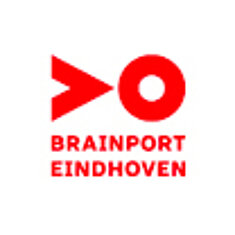Insidr: all education information for newcomers in one (online) place

Internationals often have a very different perspective on education compared to Dutch people
The Dutch education system differs from that of many other countries, which raises questions among newcomers. That's why the online platform Insidr has recently been launched, where all information about education in the Brainport region is bundled. Judith Aust (principal of Heijakker primary school in Veldhoven), Boris Prickarts (director of International School Eindhoven), and Dorus Neutkens (educational consultant at Stedelijk College Eindhoven) discuss its importance.
What can you find on Insidr?
Judith: "All the education information you need as a parent when you're orienting yourself to come to the Brainport region or already live here. From general information about the Dutch education system to what it looks like at a school in the region."
Dorus: "They can read that information in their own language. That immediately gives a welcoming feeling."
Why is the platform necessary?
Judith: "It's no surprise that more and more internationals are settling in the Brainport region. To give you an idea: at our primary school in Veldhoven, 35 to 40 percent of the lower-level students are non-native speakers. These international parents obviously consider education very important. In fact, there are more and more parents who first look for a school and then a house. But for many internationals, the Dutch education system raises questions because it differs enormously from what they're used to. They could find information about it scattered, but not bundled. On Insidr, that information is bundled and specified for this region."
Boris: "An additional effect is that international parents consequently have fewer questions for education professionals. You could call Insidr a gatekeeper. Of course, parents will still have conversations at schools, but they no longer start from zero in terms of knowledge."

How does the Dutch education system differ, then?
Dorus: "In the Netherlands, it's relatively easy to switch between levels in secondary school. Someone who starts at the lower vocational level (mavo) can, for instance, progress to the higher general secondary education level (havo). In other countries, this might not be possible, or the level differences may not exist."
Judith: "The Dutch education system is different in many more respects. For instance, we offer kindergarten education where children learn through play. In grade 3, they transition to a more formal schooling setting. In many countries, students start directly in that formal setting. So, this can be quite confusing. And this is just one small example of the changes that international parents have to deal with. Then there's the rest of the education system and all the other aspects that are different in the Netherlands, such as the housing market, work culture, and healthcare."
What other challenges do international parents face when it comes to education?
Dorus: "They often have very different perspectives on education compared to Dutch parents. Here, students have a lot of autonomy: from choosing their subjects to determining their education level. International parents often exert more influence on this and have high expectations for their children. Repeating a year might be considered a blessing for some students, but for South Korean parents, for example, it's unthinkable."
Judith: "I often hear, even about very young students: 'My children must go to university.' This is related to high expectations, but also to the fact that many countries don't have a concept of vocational education. The university is then the only option for higher education. This information is also available on Insidr, for example. Additionally, the standard reaction from internationals is: 'The students here seem so relaxed.' Apparently, children in other countries are often busier at school."
Boris, do you receive different questions within the International School?
"Because we follow an international education system, some questions don't arise, such as about transitioning to a different level. However, questions still arise when a child transfers to a Dutch school, for example, because the family wants to build a future in the Netherlands. That's why we work closely with the Stedelijk College. And platforms like Insidr also help."
So, the Dutch school system takes some getting used to. How do international parents view it over time?
Judith: "They are often positively surprised by our support systems for children. Each educational institution has a support team, and they are grateful for that. Sometimes, they also encounter the compulsory education law over time. Unfortunately, going away for four weeks at Christmas isn't possible here."
Dorus: "Within the Stedelijk College, we are increasingly offering personalized education. For example, a student may take certain subjects at a higher level. This is greatly appreciated – especially by international parents. Conversely, I also appreciate them. Internationalization enriches this region."
About Insidr:
The website Insidr provides answers to these topics, both in words and in visuals. Insidr connects education, governments, businesses, residents, and internationals by making customized information available to everyone in one digital place and by referring to (local) sources of information!
The website is a digital knowledge hub and provides internationals with essential information about the Dutch education system, aiming to assist them in their 'landing' in the Brainport region.
Insidr is an initiative of Brainport Development. Do you have questions or would you like more information? Then send a message to insidr@brainportdevelopment.nl.
